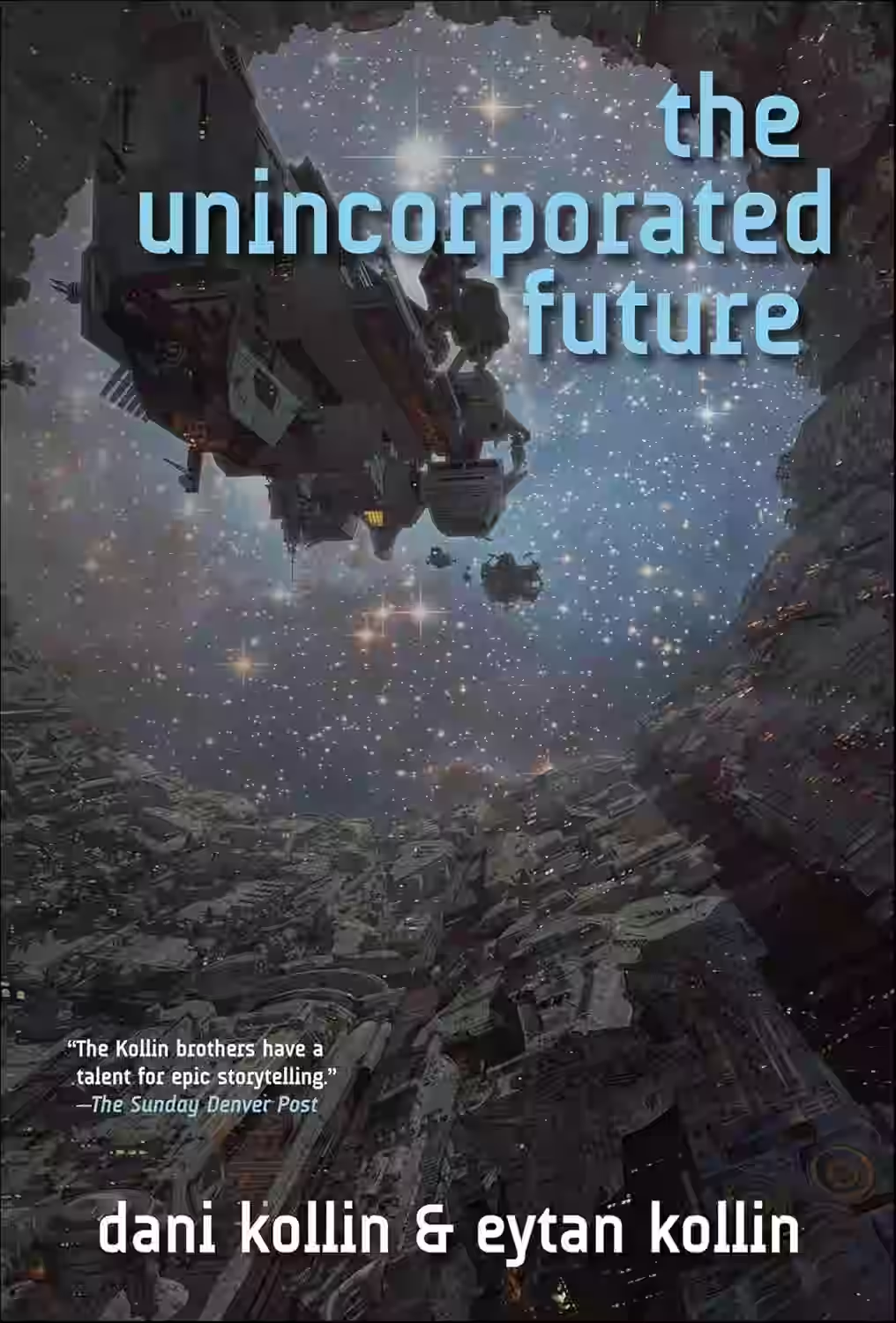
In 'The Unincorporated Future' by Dani Kollin, readers are plunged into a richly imagined universe where the struggle between corporate power and individual freedom reaches its zenith. This sci-fi novel, the concluding volume in the Unincorporated series, paints a tapestry of interstellar politics and revolution as Justin Cord, the spiritual leader of the human diaspora, battles against the Balkanization of space and the encroaching corporatocracy. The book weaves intricate political intrigue with personal drama, questioning the true price of freedom and the overarching influence of corporations on human autonomy. Kollin masterfully blends innovative world-building with a fast-paced narrative, leaving readers contemplating the societal dynamics of our own world. Its vivid characterization deepens the plot, ensuring this futuristic saga resonates with both fans of the series and newcomers to the genre.
About The Unincorporated Man Series
The Unincorporated Man series by Dani and Eytan Kollin is a provocative four-book science fiction saga exploring themes of personal freedom, capitalism, and identity in a futuristic society. The series begins with The Unincorporated Man, where Justin Cord, a billionaire from the 21st century, awakens 300 years in the future to find a world where individuals are incorporated at birth, and shares of their lives are bought and sold. Refusing to incorporate himself, Justin becomes a symbol of resistance against a system that commodifies human existence. The series continues with The Unincorporated War, The Unincorporated Woman, and The Unincorporated Future, each delving deeper into the political and ethical ramifications of a society driven by corporate interests. Through its compelling narrative and complex characters, the series challenges readers to consider the value of autonomy in a world increasingly dominated by economic structures.
About Dani Kollin
Dani Kollin is an acclaimed science fiction author renowned for his visionary narratives and inventive storytelling. Born and raised in Los Angeles, California, Kollin's educational background in film and television from New York University has significantly influenced his imaginative writing style. Together with his brother Eytan Kollin, Dani co-authored the award-winning 'Unincorporated Man' series, a thought-provoking saga that explores themes of economic theory and personal freedom in a dystopian future. The series' first book, 'The Unincorporated Man', won the Prometheus Award for Best Novel in 2010, establishing the Kollin brothers as significant voices in speculative fiction. Kollin's works are celebrated for their intricate world-building and the ability to weave complex societal issues into thrilling narratives, impacting both the science fiction genre and its readers with bold and insightful explorations of the human condition.
About Eytan Kollin
Eytan Kollin is an American science fiction author and educator, best known for co-authoring the Unincorporated Man series with his brother, Dani Kollin. Born on June 25, 1964, in Los Angeles, California, Eytan has a background in teaching history, government, and economics, which informs the political and economic themes in his writing. The Unincorporated series, beginning with The Unincorporated Man (2009), explores a future society where individuals are incorporated at birth, and shares of their lives are traded on the open market. The series includes four novels: The Unincorporated Man, The Unincorporated War, The Unincorporated Woman, and The Unincorporated Future. The first book won the 2009 Prometheus Award for Best Novel. Beyond this series, Eytan has contributed to anthologies and co-authored short fiction, often blending speculative concepts with critiques of societal structures.
Other Books by Dani Kollin, Eytan Kollin
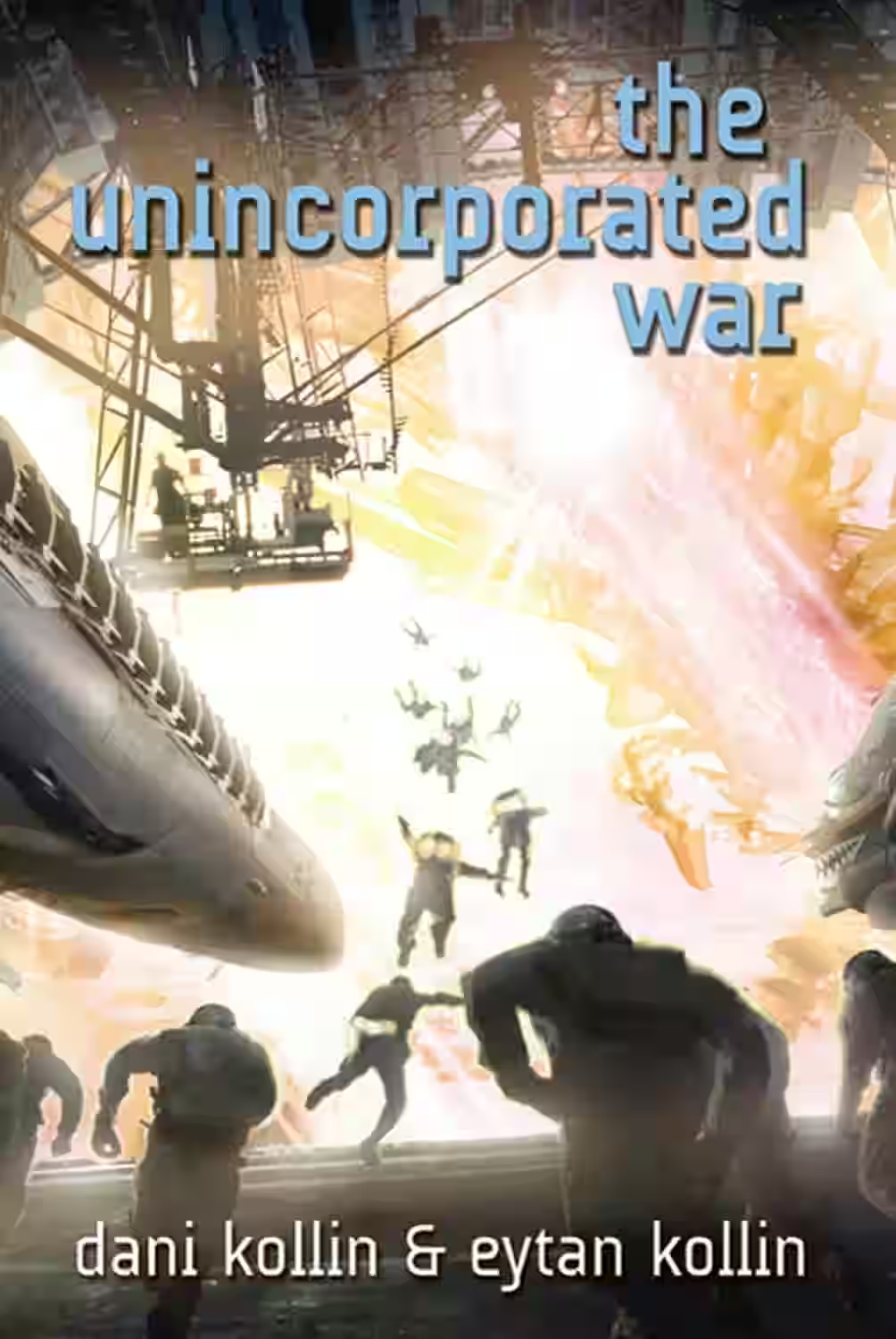
The Unincorporated War
Series: The Unincorporated Man (#2)
The Unincorporated War by Dani Kollin is an exhilarating continuation of the saga that began with The Unincorporated Man. Set in a future where individuals can be 'incorporated' (i.e., having shares sold of themselves), the book focuses on the life-or-death struggle for freedom and self-determination. In this sequel, the protagonist Justin Cord leads a fierce rebellion against the powerful corporations that control Earth. The novel delves deeper into themes of capitalism, personal autonomy, and what it truly means to be free within a highly controlled society. Rich with political intrigue and adrenaline-pumping action, the story poses thought-provoking questions about our own world and the nature of governance. The Kollin brothers have crafted a compelling narrative that keeps readers hooked with its complex characters and intricate plotting. The book stands out not only for its imaginative setting but also for its piercing social commentary.
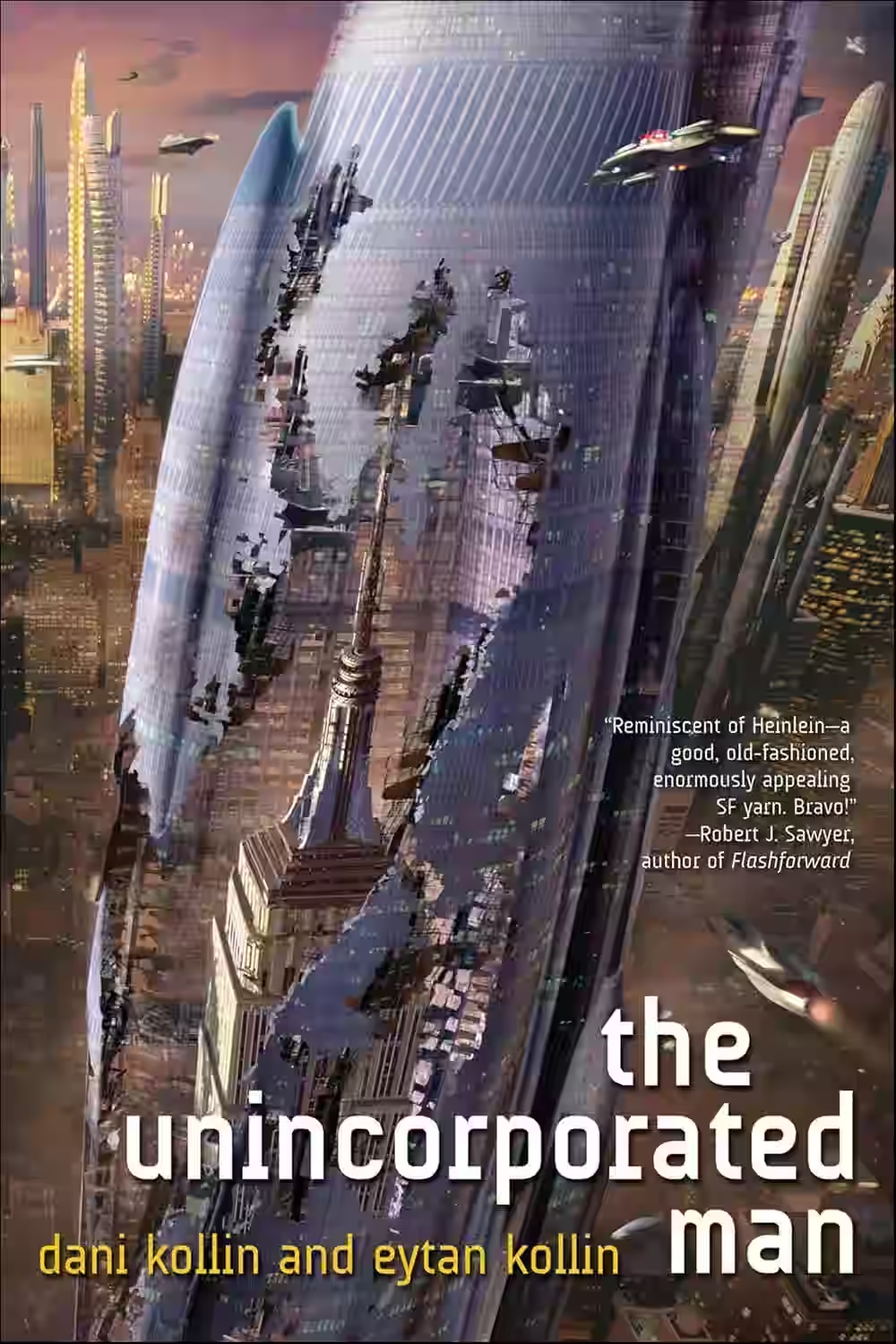
The Unincorporated Man
Series: The Unincorporated Man (#1)
The Unincorporated Man by Dani Kollin is a thought-provoking science fiction novel that delves into the consequences of extreme capitalism and personal autonomy. Set in a future where individuals are owned through shares traded in a lively stock market, the story follows Justin Cord, a wealthy 21st-century man who wakes up after being cryogenically frozen for centuries. Justin's struggle to exert his autonomy challenges the societal norms of a world no longer valuing personal freedom over economic gain. Though rich with futuristic elements, the novel also deeply examines human identity, free will, and the moral boundaries of capitalism, making it a compelling read for fans of speculative fiction and political philosophy. The dynamic plot and intriguing premise encourage readers to question their own beliefs about freedom and ownership in the context of society's increasing commodification.
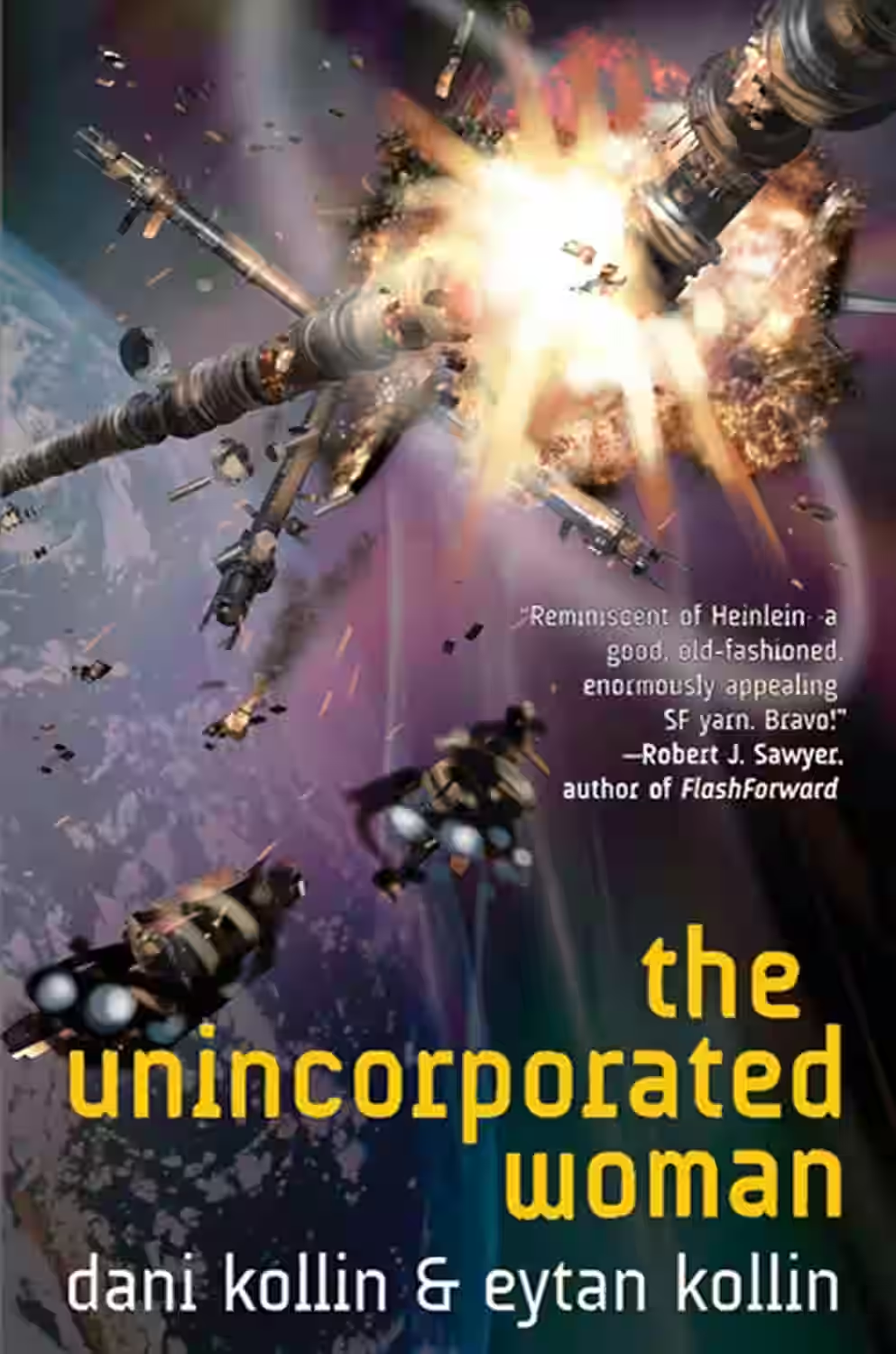
The Unincorporated Woman
Series: The Unincorporated Man (#3)
In 'The Unincorporated Woman' by Dani Kollin, the third installment in the Unincorporated series, readers are thrust into a future where individuals have become corporatized entities. Set in a universe where societal structures are dominated by corporate interests and personal autonomy is severely compromised, the narrative follows the story of J.D. Lassiter, a prominent figure caught in the turbulent tides of a battle for control over personal freedom. As interplanetary factions vie for supremacy, and old alliances crumble, this book explores themes of governance, identity, and resistance. The Kollin brothers continue to weave political intrigue with thrilling action and philosophical musings, challenging readers to consider the consequences of unchecked capitalism and the value of individual sovereignty. The novel maintains a fast-paced rhythm while diving deep into the moral conundrums posed by its futuristic setting, making it a thought-provoking addition to the series.
Similar Books
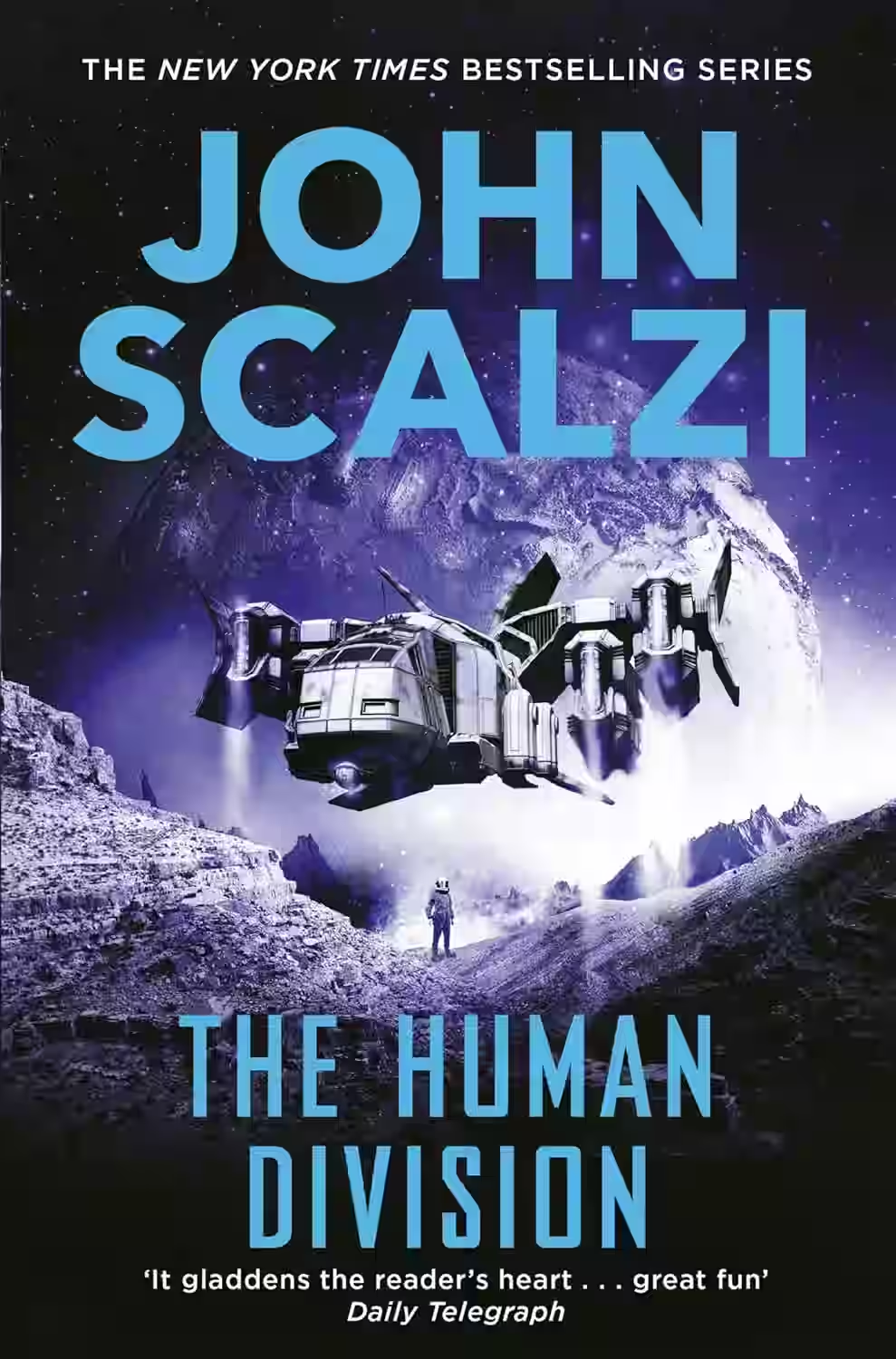
The Human Division
by John Scalzi
Series: Old Man’s War (#5)
John Scalzi’s "The Human Division" is a riveting installment in the Old Man's War series, capturing an interstellar universe teeming with tension, diplomacy, and the intricacies of human identity. Comprised of interconnected episodic tales, the book explores the political and existential quandaries faced by humanity navigating a galaxy rife with alien alliances and treacheries. Central to the narrative is the underdog story of second-string diplomats and unsung heroes working in the shadow of larger-than-life events to maintain peace and relevance among the stars. Scalzi’s characteristic wit and attention to character development make for a thought-provoking and accessible read, providing commentary on earthly political dynamics through the lens of speculative fiction. The themes of survival, cooperation, and the persistent questioning of what it means to be human resonate deeply, making it both an entertaining and reflective experience for sci-fi enthusiasts.
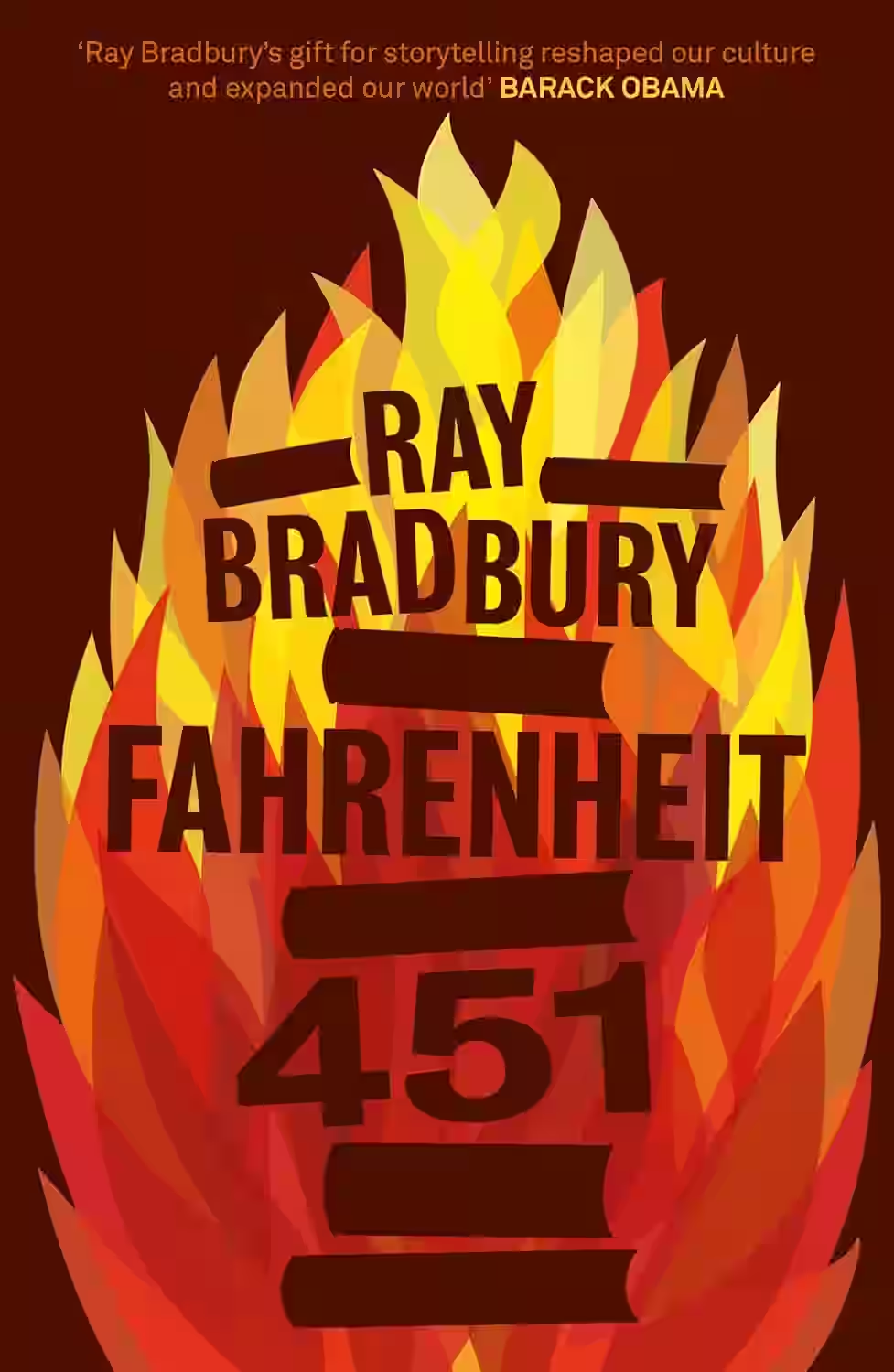
Fahrenheit 451
by Ray Bradbury
Ray Bradbury's "Fahrenheit 451" is a profound dystopian novel that delves into the consequences of a society bereft of critical thinking and free expression. Set in a future where books are banned and 'firemen' burn any that are found, the narrative follows Guy Montag, a fireman who begins to question his role in suppressing knowledge. The novel explores themes of censorship, the dehumanizing effects of technology, and the power of literature to inspire change. Bradbury's incisive commentary on conformity and intellectual repression remains remarkably pertinent, making it a timeless critique of society's foibles and the resilience of the human spirit in the pursuit of truth.

Uglies
Series: Uglies (#1)
In Scott Westerfeld's dystopian novel 'Uglies', readers are transported to a future world where physical beauty is mandated by society. At the age of sixteen, citizens undergo compulsory cosmetic surgery to transform from 'Uglies' to 'Pretties'. The story follows Tally Youngblood, who is on the brink of her transformation, but her world is turned upside down when she meets a rebellious friend, Shay, who questions the societal norms. Themes of identity, conformity, and the nature of beauty are skillfully explored as Tally embarks on a journey that challenges her understanding of reality. Westerfeld's book offers sharp social commentary, action-packed sequences, and believable character development, making it an engaging read that probes thought-provoking issues pertinent to both adolescents and adults. 'Uglies' evokes reflection on the pressure for aesthetic perfection and the loss of individuality, resonating deeply with its readers and sparking conversations about modern beauty standards.

Reached
by Ally Condie
Series: Matched (#3)
In 'Reached,' the final installment of Ally Condie's dystopian Matched trilogy, the stakes are higher than ever as Cassia, Ky, and Xander find themselves on the frontline of a revolution against the oppressive Society. The narrative unfolds through alternating points of view, deepening the reader’s connection to each character’s growth and struggles. As a mysterious plague begins to spread, revealing the Society’s fragility, the trio faces personal and ideological challenges that test their loyalties and resolve. Themes of freedom, identity, and sacrifice are intricately woven throughout, providing a gripping conclusion that explores the complexities of choice and love in a tightly controlled world. Condie's poetic prose and detailed world-building enhance the story's emotional impact, culminating in a finale that seeks to leave readers reflecting on the nuances of control and individuality.